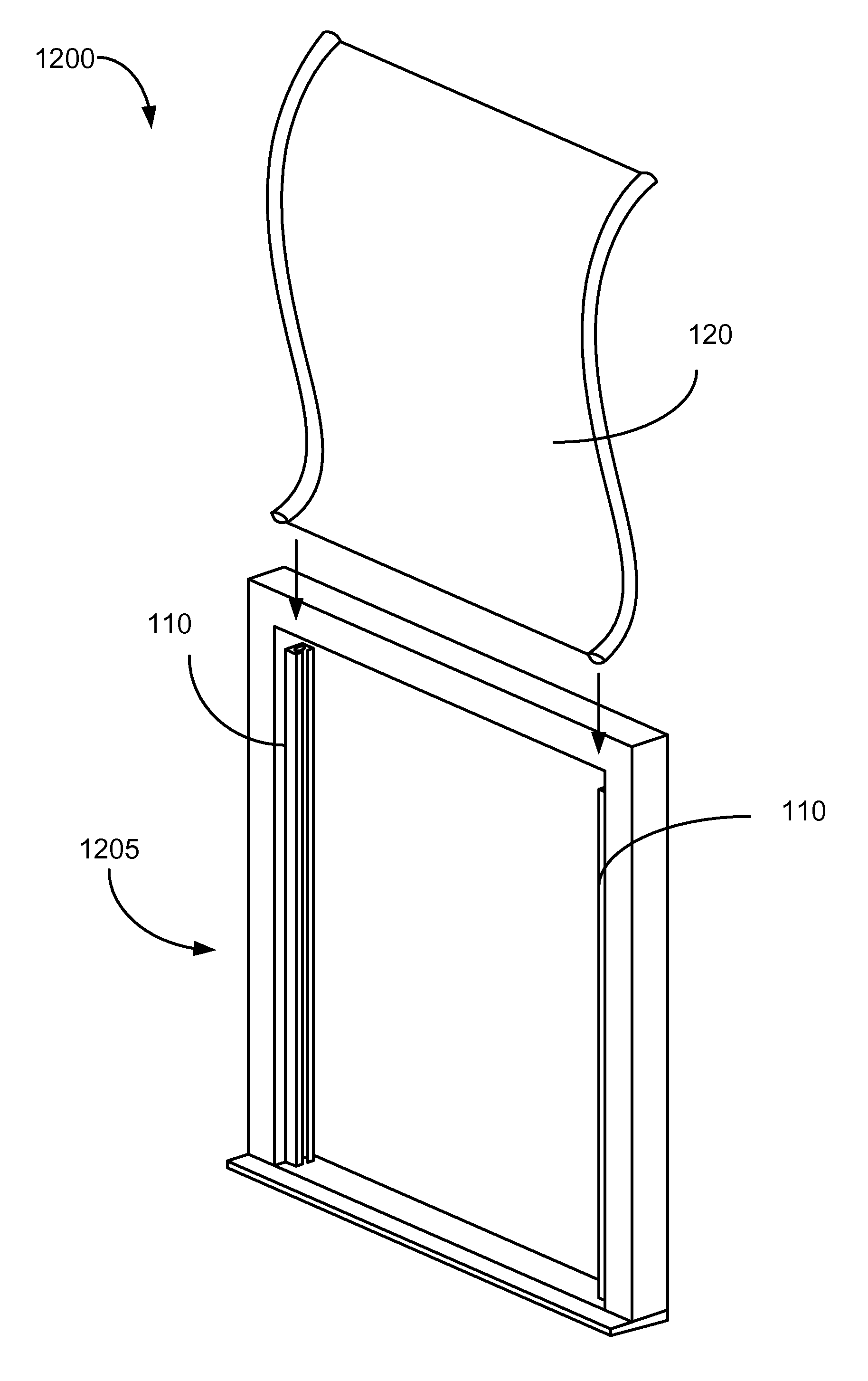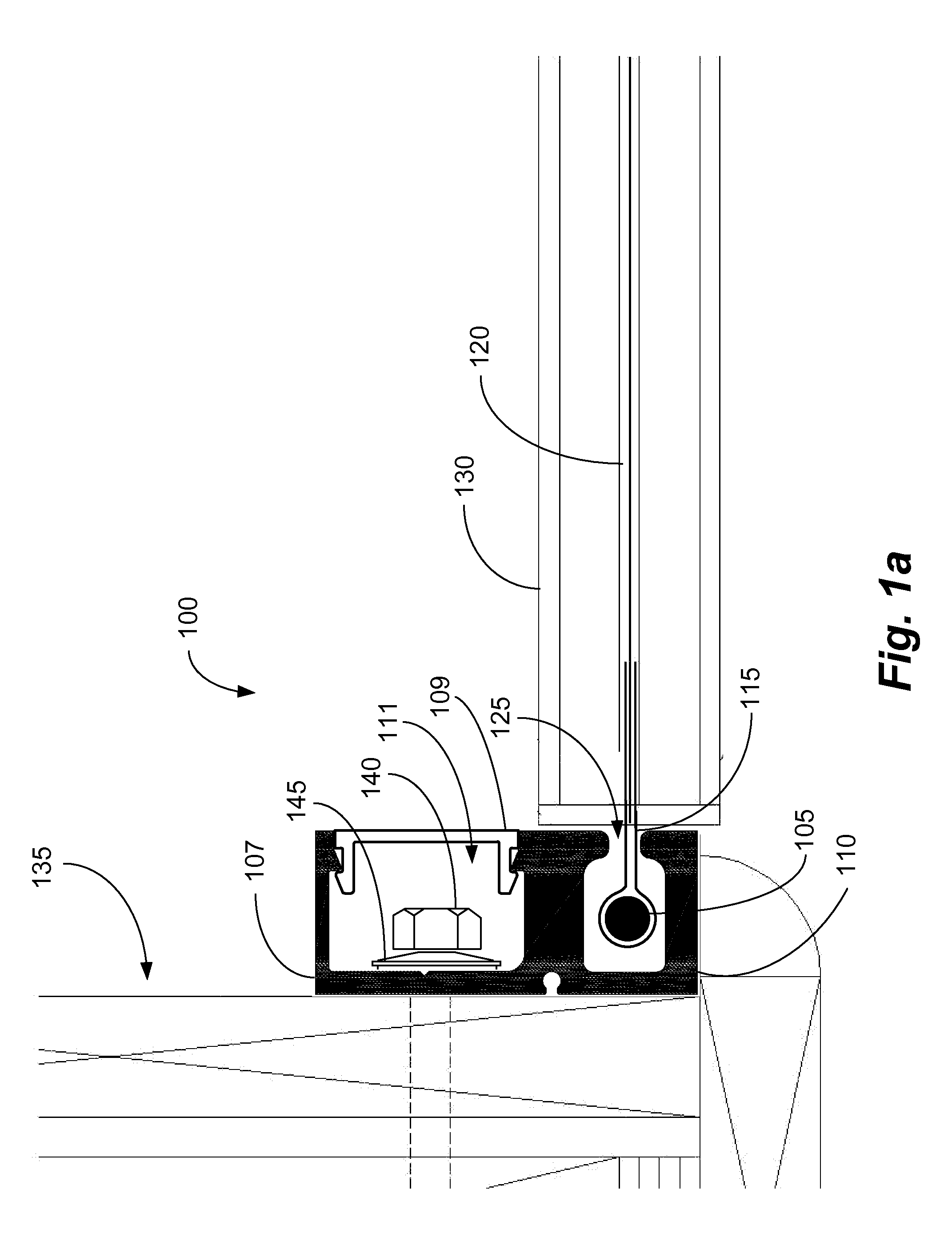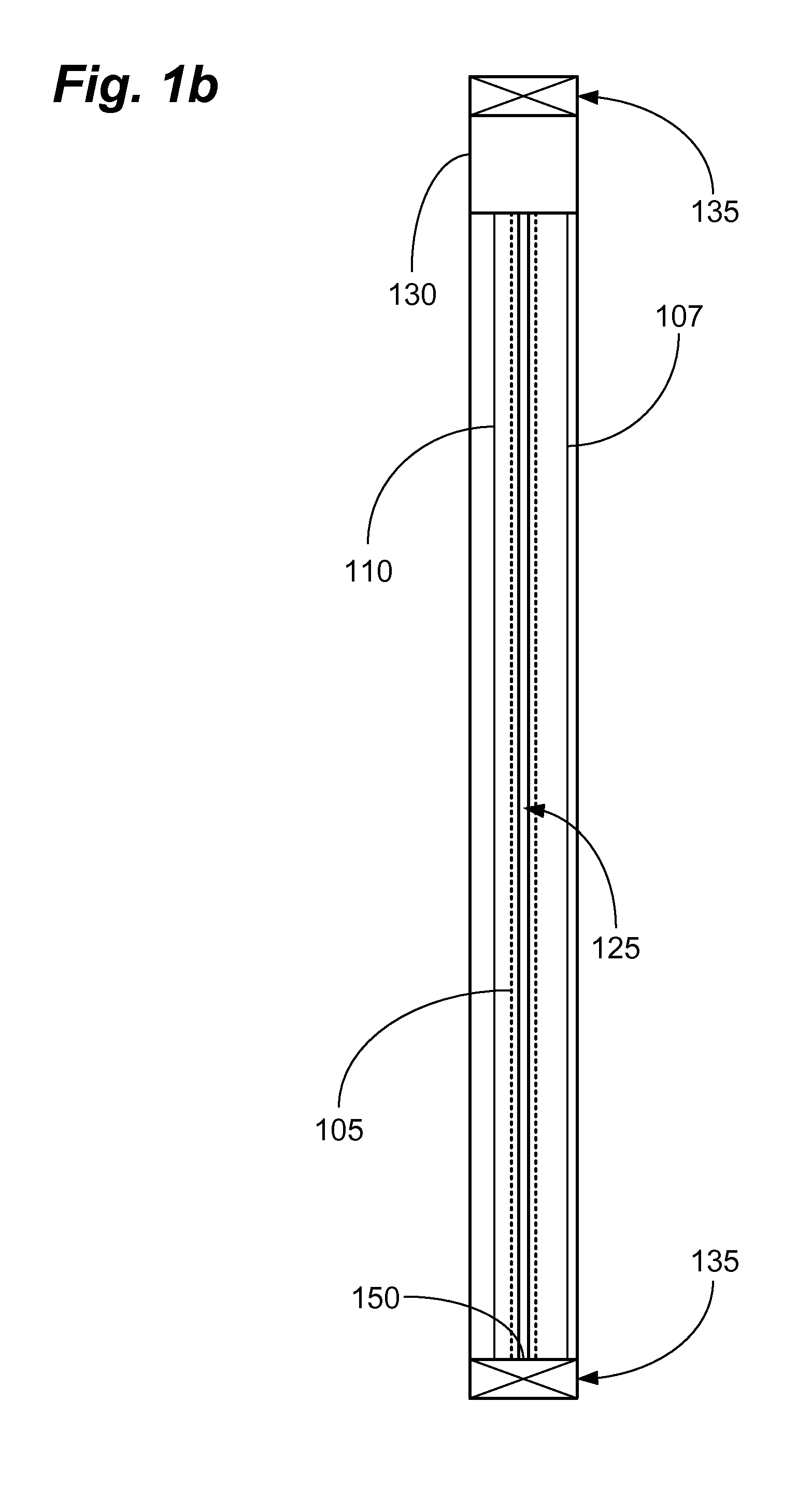Retractable, low-profile storm shield systems and methods
a low-profile, storm shield technology, applied in the direction of sliding/moving grilles, door/window protection devices, curtain suspension devices, etc., can solve the problem of limited protection and achieve the effect of increasing protection and reducing volum
- Summary
- Abstract
- Description
- Claims
- Application Information
AI Technical Summary
Benefits of technology
Problems solved by technology
Method used
Image
Examples
Embodiment Construction
[0046]Embodiments of the present invention relate generally to storm protection systems and more specifically to a flexible, retractable storm protection system with a reduced storage volume and increased protection than have been conventionally provided. The system replaces a conventional hem cord design with a stationary hem rod located in a retention channel to provide the security of the hem cord system with the compact size of a hem-only system. The system can employ a retention channel with a hem rod disposed therein. The screen can have a loop sewn, welded, or otherwise manufactured into each vertical edge sized to easily slip over the hem rod. The hem rod can retain the screen in the retention track even when exposed to, for example, high wind, driving rain, and / or impacts from flying objects.
[0047]To simplify and clarify explanation, the system is described below as a system for protecting the windows and doors of residential and commercial buildings. One skilled in the art...
PUM
 Login to View More
Login to View More Abstract
Description
Claims
Application Information
 Login to View More
Login to View More - R&D
- Intellectual Property
- Life Sciences
- Materials
- Tech Scout
- Unparalleled Data Quality
- Higher Quality Content
- 60% Fewer Hallucinations
Browse by: Latest US Patents, China's latest patents, Technical Efficacy Thesaurus, Application Domain, Technology Topic, Popular Technical Reports.
© 2025 PatSnap. All rights reserved.Legal|Privacy policy|Modern Slavery Act Transparency Statement|Sitemap|About US| Contact US: help@patsnap.com



